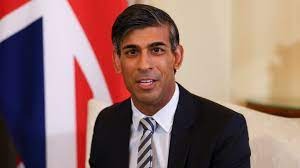Slavic entity in Bosnia Efforts by the Republika Srpska to secede are intensifying
On Tuesday, lawmakers in Bosnia’s Serb entity decided to suspend recognition of decisions issued by the country’s constitutional court. This step is expected to exacerbate ethnic tensions in the profoundly polarized nation.
The vote was the most recent in a string of divisive political maneuvers masterminded by Milorad Dodik, the leader of Bosnia’s Serb minority who has long advocated for independence from the nation’s main institutions.
Following the constitutional court’s decision last week to change the rules of the judicial body and permit it to meet without Serb justices present, Dodik called for the vote.
After the Bosnian parliament declined to fill a vacancy on the bench of the judicial body, the court made its judgment.
“The Constitution is extensively violated by the constitutional court. Before the vote on Tuesday, Dodik stated, “It is entirely delegitimized and has driven itself to the brink of ridiculousness.
The US embassy in Sarajevo, the country’s capital, instantly denounced the vote, claiming that the measure threatened to jeopardize the 1995 Dayton Peace Accords, a historic accord that put an end to the civil conflict.
The US Embassy issued a statement on its official Twitter account, referring to Bosnia’s Serb region, and calling Mr. Dodik’s actions to deny residents of Republika Srpska their basic rights to press, speech, and assembly as “foolish and irresponsible.”
The Dayton accord, which ended the fighting in Bosnia in the 1990s but generally failed to provide a framework for the nation’s democratic growth, left the country with a broken administrative structure.
According to the agreement, Bosnia has been split into a federation of Muslim-Croats and Republika Srpska, a Serb country. A feeble central government connects the two entities.
Dodik, who is still a Kremlin friend, has had considerable power over Bosnia’s Serb entity for years. He routinely inflames ethnic tensions and makes threats to break away from the institutions of the Balkan nation.







